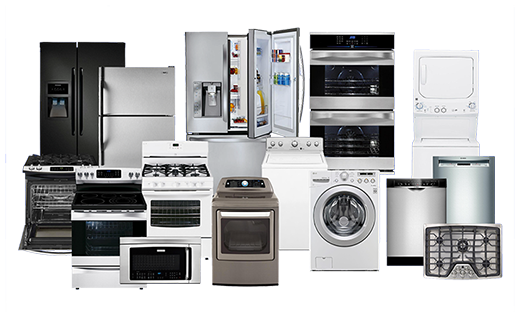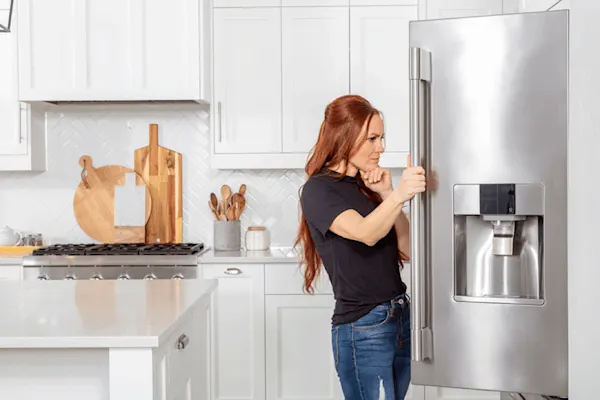Refrigerator Troubleshooting Checklist – Dependable Refrigeration & Appliance Repair Service Washing Machine Repair
Refrigerator Troubleshooting Checklist – Dependable Refrigeration & Appliance Repair Service Washing Machine Repair
Blog Article
The Ultimate Guide to Recognizing Appliance Repair Work in the house
When your refrigerator quits cooling down or your stove refuses to warm, it can really feel overwhelming. Understanding device repair in the house can save you money and time. You'll discover to acknowledge symptoms, utilize important tools, and comply with a systematic troubleshooting procedure. However prior to you begin, there are essential security precautions you need to think about. What are the most common issues, and how can you repair them? Let's check out the essentials.
Usual Home Appliance Issues and Their Signs
When your devices start breaking down, it's vital to identify the signs beforehand. Overlooking them can lead to larger concerns and costly repair services. For circumstances, if your fridge isn't cooling properly, you could notice cozy areas or condensation forming. This can suggest a failing compressor or a blocked vent.Your dishwasher may reveal problems with unclean recipes or uncommon sounds during cycles. If you hear grinding or clanking, it's time to investigate.A cleaning equipment that won't rotate or drain pipes can leave you with soggy laundry, recommending a stopped up drainpipe or a malfunctioning pump.Lastly, if your stove's temperature level seems off or it takes for life to pre-heat, you might be handling a faulty thermostat. By staying sharp to these signs and symptoms, you can resolve problems prior to they rise into significant repair services.
Necessary Tools for Device Repair Work
When you're taking on appliance repairs at home, having the right tools is essential. Basic hand tools like screwdrivers and pliers will help you disassemble and repair numerous home appliances, while electrical screening tools ensure you're working safely with electrical wiring. Let's discuss what you require to get going on your repair work journey.
Standard Hand Devices
Having the right tools is necessary for efficient home appliance repair in the house. Beginning with a dependable screwdriver set, consisting of both flathead and Phillips types, as screws are common in device setting up. Pliers are also important; they assist with gripping, twisting, and cutting cables or small parts. A set of needle-nose pliers can reach limited spots easily. You'll require a good flexible wrench for tightening or loosening up nuts and screws. An energy knife comes in handy for puncturing product packaging or insulation. Don't fail to remember a strong workbench or surface area to securely organize your tools and components. With these basic hand devices, you'll be well-prepared to take on most home appliance repair work that come your method.
Electrical Testing Tools
Together with fundamental hand devices, electrical screening gadgets play a vital duty in home appliance fixing. These devices assist you detect electrical problems and guarantee devices function safely. A multimeter is essential; it gauges voltage, present, and resistance, permitting you to pinpoint issues promptly. A non-contact voltage tester is one more must-have, letting you spot real-time cables without making straight call, enhancing your safety and security. Secure meters are wonderful for measuring present flow in cords without separating them, conserving you time and effort. Furthermore, circuit testers can rapidly inspect if electrical outlets are operating properly. By utilizing these devices, you'll streamline your troubleshooting process and boost your fixing skills, making home appliance maintenance a great deal less complicated.
Step-by-Step Guide to Diagnosing Home Appliance Issues
When your device breaks down, it can be discouraging, but identifying the concern does not need to be frustrating. You'll discover to determine typical issues and apply effective repairing methods. Let's stroll via the steps to get your device back in functioning order.
Usual Device Problems

Repairing Strategies Described

Repairing Major Cooking Area Home Appliances: A Closer Look
Have you ever wondered exactly how to tackle common problems with your kitchen area appliances? Repairing significant kitchen home appliances like fridges, stoves, and dishwashing machines can be simpler than you believe. Beginning by identifying the trouble-- whether it's a refrigerator not cooling or an oven that will not heat up. Usually, a straightforward reset or checking the source of power can solve the issue.For refrigerators, tidy the condenser coils and check the door seals. If your oven's not heating, check the home heating element and thermostat. Dish washers could just require a clean filter or a reset to get them back at work. Constantly disconnect the home appliance prior to diving right into repair work to ensure your safety.Don' t neglect to seek advice from the user handbook for specific fixing tips connected to your version. With a bit of perseverance and the right devices, you can with confidence deal with appliance repairs and conserve money while doing so!

Fixing Washing Equipments: Tips and Techniques
When your laundry appliances begin acting up, it can feel overwhelming, but fixing them does not need to be a headache. Start by examining the power supply. Validate the home appliance is connected in and the electrical outlet is operating. Next off, evaluate the door or lid switch; a damaged button can avoid the equipment from operating.For washing machines, if it's not rotating, examine for unbalanced loads. Rearranging the clothing could solve the problem. read more If your clothes dryer isn't home heating, clean the lint filter and check the vent for blockages.Listen for uncommon noises; they can show an issue. If your device is leaking, examine the hose pipes for cracks or loosened connections. Document any kind of error codes shown on digital screens, as they can lead you in identifying the issue. Finally, consult the user manual for certain repairing pointers connected to your model.
Security Precautions to Take During Repairs
Prior to you start any kind of device repairs, it's vital to focus on safety to avoid mishaps or injuries. First, unplug the home appliance or switch off the breaker to guarantee no power reaches it while you function. Use protected devices to minimize the danger of electric shock. Put on security goggles and handwear covers to shield yourself from sharp sides or debris (Dependable Refrigeration & Appliance Repair Service Washing Machine Repair).Make particular your workspace is tidy and well-lit, so you can see what you're doing. Maintain youngsters and pets away from the location to avoid distractions and prospective threats. If you're managing gas appliances, be added cautious; look for leakages before proceeding.Take your time, and don't hurry via repairs. If you feel unpredictable regarding any step, it's far better to stop briefly and study than to presume. Complying with these precautions will aid produce a much safer environment for your do it yourself appliance fixing job
When to Call a Specialist for Help
Just how do you recognize if it's time to hire an expert for home appliance repair services? If you have actually tried standard troubleshooting without success, it's a clear indication. If your appliance still will not start or shows unusual noises after resetting it, do not think twice to look for expert help.When you discover leaks, smoke, or melting smells, prioritize safety and call a professional right away. These concerns can bring about even more substantial damage or pose risks to your home.Also, if your home appliance is under guarantee, speaking to a specialist is commonly the very best course. They can ensure that fixings won't invalidate your guarantee, saving you cash in the lengthy run.Finally, if you're not sure or uneasy with complicated repairs, it's important to leave it to the experts. Keep in mind, dealing with difficult problems without the right competence can result in costly errors. Count on a professional when doubtful!
Regularly Asked Concerns
Just How Can I Prevent Device Problems in the Future?
To stop home appliance problems in the future, you need to perform regular maintenance, look for deterioration, tidy filters, and prevent overloading. Remaining proactive will aid extend their life expectancy and maintain them running smoothly.
What Are the Most Usual Do It Yourself Device Repair Service Mistakes?
You could neglect safety and security preventative measures, skip troubleshooting steps, or use incorrect devices when trying do it yourself appliance repair work. Rushing the process or ignoring maker guidelines can lead to even more considerable problems and costly mistakes. Stay individual and educated!
Exactly how Do I Know if a Component Demands Replacement?
You can tell if a component requires substitute by inspecting for uncommon sounds, leakages, or irregular performance. If the appliance struggles to run correctly or shows visible damages, it's likely time for a substitute.
Can I Use Generic Parts for Home Appliance Services?
Yes, you can utilize common components for home appliance repair services, but ascertain they're suitable - Kenmore Dryer Repair Oro Valley Dependable Refrigeration & Appliance Repair Service. Generic components may save you cash, but they can impact performance or long life, so weigh your options meticulously prior to making a choice
What Warranties Cover Device Fixes?
The majority of home appliance service warranties cover repairs for making issues, however they often omit damage from misuse. Check your service warranty terms thoroughly, as some might need utilizing certified professionals and original parts for insurance coverage to continue to be valid.
Report this page